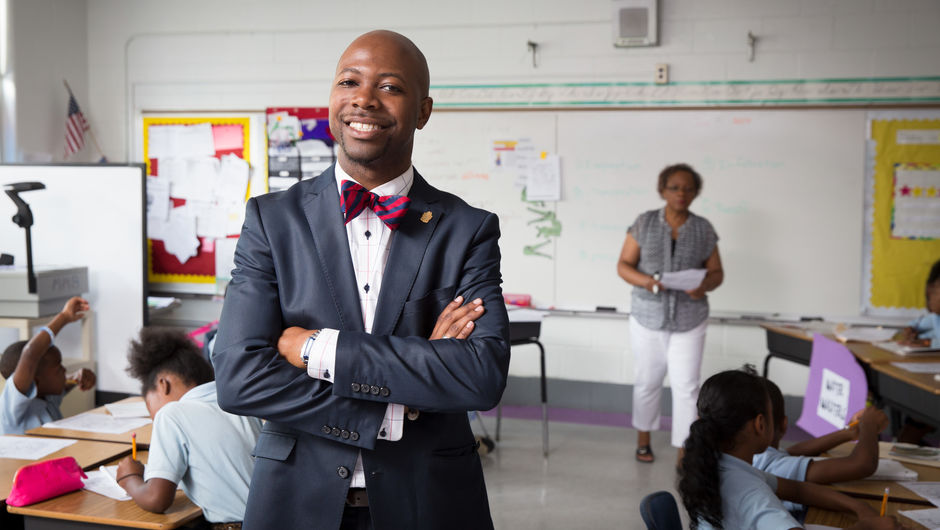You’re all signed up for the Education Slice
Thank you for your interest in our service.
Watch out for a confirmation email from our subscriptions team. Once you have confirmed you will join the community of over 35,000 subscribers who are receiving daily Education intelligence to lead, innovate and grow.
Note: Due to the nature of this message you may find this in your "promotions" or "spam" folders, please check there. If nothing arrives within a few minutes let us know. If you do not receive this email we will be happy to help get you set up.
Adding the email address [email protected], will help to ensure all newsletters arrive directly to your inbox.
Recent Editions

Education Slice
National
The Supreme Court has ruled in favor of parents in a case against Maryland's Montgomery County Public Schools regarding the opt-out policy for certain storybook readings. The court's 6-3 decision in Mahmoud v. Taylor found that the school board violated parents' First Amendment rights by not allowing them to opt their children out of lessons that conflict with their religious beliefs. Justice Samuel Alito stated that the school board's actions “substantially interfere with the religious development of petitioners' children.” The ruling comes after a lawsuit from a group of Muslim, Christian, and Jewish parents who argued that mandatory participation in LGBTQ+-themed lessons constituted coercion. Dissenting Justice Sonia Sotomayor warned that the ruling could lead to chaos in public education, imposing burdens on schools to provide advance notice for every lesson that might conflict with parental beliefs.
Full Issue
Education Slice
California
In a significant 6-3 ruling, the U.S. Supreme Court has upheld the federal E-rate program, which provides essential internet funding for schools and libraries. The case, Federal Communications Commission v. Consumers' Research, addressed the constitutionality of the $9bn Universal Service Fund's funding mechanism. In the court's majority opinion, Justice Elena Kagan wrote: “For nearly three decades, the work of Congress and the Commission in establishing universal-service programs has led to a more fully connected country. And it has done so while leaving fully intact the separation of powers integral to our Constitution.” The decision was met with dissent from Justice Neil Gorsuch, who argued it violated the Constitution's separation of powers. “Within the federal government, Congress ‘alone has access to the pockets of the people,’” he added in his dissenting opinion, which Samuel Alito and Clarence Thomas joined. The ruling is crucial for the education sector, as over 106,000 schools benefited from E-rate funding, impacting more than 54m students. The decision was hailed by the Education and Libraries Networks Coalition (EdLiNC), of which the Association of School Business Officials International is a member. “Expanding the E-Rate eligible services list to include Wi-Fi hot spots and services is common sense policy that will allow our schools to meaningfully address ongoing post-pandemic needs to connect students at home for homework, learning, research, and more,” said James Rowan, CAE, SFO, chief executive officer and executive director, ASBO International. “We thank the chairwoman for her continued support for and leadership on E-Rate and connectivity for students.”
Full Issue
Education Slice
Texas
The Texas State Board of Education has reapproved an elective course on American Indian/Native Studies, allowing high school students to learn about Indigenous history and cultures. This decision, made with a bipartisan 9-5 vote, faced criticism from some Republican members who labeled the course as "un-American woke indoctrination." Despite concerns about potential conflicts with Senate Bill 12, which restricts diversity efforts in schools, advocates like Orlando Lara emphasized that tribal identity differs from ethnic classifications. The course's reapproval is considered a significant step in a state that has limited inclusive education, with board member Marisa B. Perez-Diaz saying: "To not allow students to have the opportunity to get any of this knowledge would be a disservice."
Full Issue
Education Slice
Florida
Florida is collaborating with university leaders from Georgia, South Carolina, North Carolina, Tennessee, and Texas to establish a new accrediting body, the Commission for Public Higher Education, as announced by Gov. Ron DeSantis. The initiative aims to provide an alternative to the Southern Association of Colleges and Schools Commission on Colleges, which has faced criticism from Florida education officials. DeSantis pointed out that students need "real, serious academic rigor" and expressed concerns about the current accreditation system, which he described as a "monopoly of the woke accreditation cartels." The state has previously taken steps to distance itself from the Southern Association and is currently appealing a lawsuit dismissed by U.S. District Judge Jacqueline Becerra regarding the constitutionality of the accreditation system. DeSantis is pushing for the new commission's approval while the Trump administration is in office, warning: "If it doesn't get approved a president could come in next and potentially revoke it."
Full Issue









